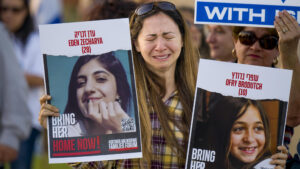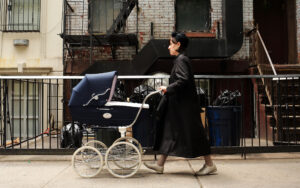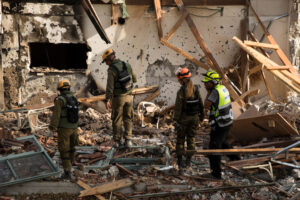By choice, I’ve worked with victims of war and atrocity. During my lengthy career as a psychologist, I’ve cried with scores of Holocaust survivors and their children. I’ve visited the killing fields of Poland and written extensively on the psychological impact of genocide on survivors and their children. I experienced the rage, guilt and terror of traumatised Vietnam vets, abandoned by their country, left alone to battle the demons of a brutal war. One learns that the human heart was not constructed to comprehend loss on an industrial scale, so it compartmentalises and focuses forward.
I travelled to Beirut, Lebanon in 1980, five years after the civil war was presumed over. It wasn’t. The remnants of a once beautiful city lay scattered among mounds of rubble and ash. I heard harrowing accounts of torture, beheadings, and rape. And by the seventh day, when I thought I was beyond shock, I watched, horrified, as two children in a Beirut refugee camp kicked a human skull back and forth like it was a soccer ball.
I’ve lived in Israel for 37 years. Like many Israelis, I’m no stranger to rocks, bullets, suicide bombers, and the blast of missiles fired from Gaza and Lebanon. Confronted with these things, I was never confused about what I felt. I can recognise fight, flight, and freeze from the pumping of adrenalin, a racing heart, and a closed fist. Sadly, with enough experience, you learn your instinctive responses to danger.
But nothing prepared me — nor my fellow Israelis — for October 7.
October 7 was Simchat Torah, a holiday of love, joy, and gratitude. On Simchat Torah, we dance seven times around the Torah. Seven symbolises a cycle, a completion — both an end and a beginning. Time and growth are cyclical, according to Jewish tradition. Every seven days — on Shabbat — we read a portion of the Torah (The Old Testament) and on Simchat Torah we read the last parsha (portion). Completions deserve a day of joy. So we dance, sing, and eat.
Or run into bomb shelters.
On the morning of Simchat Torah, we heard booms from the Iron Dome shooting down missiles fired from Gaza. Because I don’t use devices on Shabbat and holidays, I asked Diana, my wife’s Filipino caretaker, what was going on.
“Doc,” she said, without her constant smile, “my best friend from childhood has been kidnapped and taken to Gaza along with her Alzheimer’s patient [an 81-year-old woman]. They dragged them into the trunk of a car.”
My wife has Alzheimer’s. I envisioned her being kidnapped and thrown into a cell in Gaza. Trapped in a locked room without her medicine, her family, her security, her TV, her multiple walks per day, her diapers, she would descend into a dark and terrifying place. Without a kiss from me, without a smile and hug from her grandchildren, without routine and care, I can’t imagine what form of hell would invade her empty mind.
*On 8th October, I wrote:
We are in a time of trouble — deep trouble. We’re one day into the war and I know of three dead soldiers, their three widows, and their eight children. I’m not alone. Today, on Isru Chag — the day after Simchat Torah, a day of lingering joy — every Israeli mourns a loved one, murdered or kidnapped.
My son calls me to tell me that his friend Nati was killed at the Nova Festival. They found his mutilated body near the multi-million dollar fence designed to protect us. My daughter tells me her close friend’s husband, a colonel, was killed defending the Kibbutzim.
Yet, this is only the beginning. Every man under 40 has been called up — our son, his friends, and the sons of my friends. Every former soldier over 40 is volunteering. Today, this fractured country feels whole. Right, Left, religious, secular, Ashkenazi or Sephardi, pro judicial reform or anti — Hamas makes no distinction. Right now — “thanks to Hamas” — neither do we.
My family from the States calls. Everyone wants to know how we feel. Mad, sad, glad, scared?
For now, none of the above. Purposeful, determined, unified.
*
More than 100 days into the war, we Israelis grieve as a nation and wage war with purpose.
My son’s commander was shot in the leg. One week later, he left the hospital and rejoined his unit. His story is ubiquitous. A young man, a medic in an elite combat unit fighting in Gaza, attempted to save the lives of two soldiers hit by an rocket-propelled grenade. He directed one soldier to put his finger on a hole spurting blood while he placed torniquets on the two shattered bodies. He told me this story with tears pouring down his cheeks. One of the soldiers died in the hospital. I held him and said, “It’s not your fault. You did what you could.” That was on a Sunday. On the Monday, he was back in Gaza, and he sent me a smiley with this message: “I’m good. I did my best. Thanks.”
I speak to my 37-year-old son, Aaron, daily. He’s a commander in a special forces unit. In our post-Freudian world, in which we idolise personal feelings at the expense of national purpose, he doesn’t speak the language of emotions, except for this: “I hate war. But it’s what we have to do.” I’m in contact with soldiers on the front multiple times per day. They speak like my son: “It’s what we have to do.”
Last week I took my three married daughters and my daughter-in-law out to a restaurant. I wanted to spoil them. Their husbands are in the reserves; they’re keeping the home front functioning. Several of their friends’ husbands have died in combat. My daughters and daughter-in-law often have tears in their eyes. No one speaks the language of revenge or hate. We speak the language of necessity, of history, of homeland.
That evening, I learned something obvious but unexpected. The war has created a psychological phenomenon which we call the Wartime Commuter Syndrome. Every few weeks, our soldiers travel back and forth between the front and their homes. Between bullets and babies. Between the camaraderie of brothers-in-arms to children and wives with needs and expectations. Between the hyper-focus of a combat soldier and the chaos of competing demands. Humans aren’t built for this level of flexibility. When the dust settles, we’ll assess the impact on marriage and family life.
For now, we have a war to win.
The time frame for defeat stretches interminably, while our daily death toll rises. One hundred thousand citizens from the North have been evacuated to hotels because of constant bombardment from Hezbollah rockets. Iran threatens to obliterate us. Uncertainty breeds anxiety; anxiety leads to hopelessness. Strong leadership would be the antidote. Unfortunately, we’re throwing dice against the wall when betting on Israeli leaders to act with integrity — to act as if they deserve to lead a heroic nation.
Yet, we Israelis have faith in ourselves. The past 100 or so days have proven to us that beneath the seemingly irreconcilable divisions, love and commitment reside. And we have history on our side. We, Jews, have survived expulsions, pogroms, the Holocaust, constant wars, terror, internecine strife, and every conceivable iteration of antisemitism. And we will continue to survive. Of this, I’m certain.
view 67 comments




















